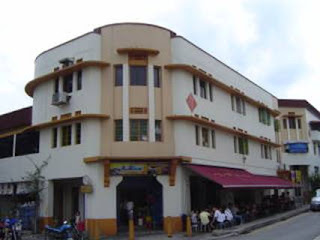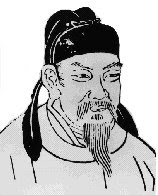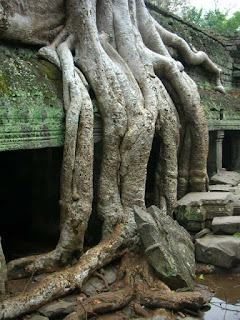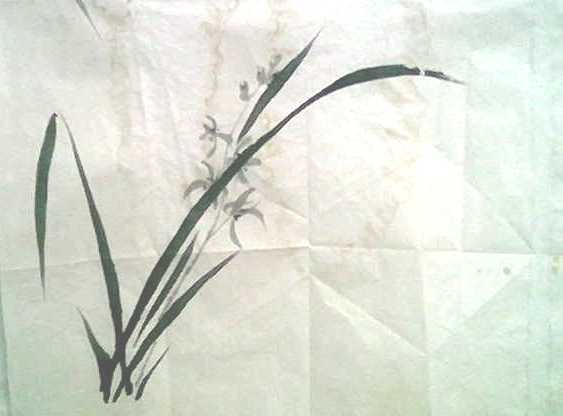
2007年1月31日星期三
2007年1月30日星期二
2007年1月29日星期一
2007年1月28日星期日
2007年1月27日星期六
2007年1月26日星期五
骊山怀古
蒋介石办公室遗址
半坡丝路秦俑陵(1)
玉环褒姒国城庆(2)
五间厅内景依旧 (3)
抓蒋改称兵谏亭 。
(1) 半坡中国黄河中游新石器时代仰韶文化遗址,在陕西省西安市东郊半坡村。据碳14测定并经校正,年代为公元前4800~前4300年 ,西安为丝绸之路起点,秦马俑展览馆亦在附近。
(2) 玉环即杨贵妃,安禄山事件后唐朝国力渐衰。
(3) 1936年,日寇不断入侵,蒋介石却坚持“攘外必先安内”,二次来到西安,下榻华清池五间厅部署“剿共戡乱”。张学良、杨虎城两位爱国将领苦谏、哭谏未遂,12月12日凌晨,下榻五间厅的蒋介石被枪声惊醒,惊慌逃逸藏匿,遂被发现并扶掖下山。这就是震撼中外的“西安事件”。今日,遗址内基本保留蒋氏当年下榻原貌,墙上悬挂张、杨肖像,供后人凭吊。骊山蒋被抓的地方有凉亭,当时称“抓蒋亭”,遂改“兵谏亭”
骊山怀古
半坡丝路秦俑陵(1)
玉环褒姒国城庆(2)
五间厅内景依旧 (3)
抓蒋改称兵谏亭 。
(1) 半坡中国黄河中游新石器时代仰韶文化遗址,在陕西省西安市东郊半坡村。据碳14测定并经校正,年代为公元前4800~前4300年 ,西安为丝绸之路起点,秦马俑展览馆亦在附近。
(2) 玉环即杨贵妃,安禄山事件后唐朝国力渐衰。
(3) 1936年,日寇不断入侵,蒋介石却坚持“攘外必先安内”,二次来到西安,下榻华清池五间厅部署“剿共戡乱”。张学良、杨虎城两位爱国将领苦谏、哭谏未遂,12月12日凌晨,下榻五间厅的蒋介石被枪声惊醒,惊慌逃逸藏匿,遂被发现并扶掖下山。这就是震撼中外的“西安事件”。今日,遗址内基本保留蒋氏当年下榻原貌,墙上悬挂张、杨肖像,供后人凭吊。骊山蒋被抓的地方有凉亭,当时称“抓蒋亭”,遂改“兵谏亭”
2007年1月25日星期四
2007年1月24日星期三
2007年1月23日星期二
2007年1月22日星期一
海宁观潮 - 1994
2007年1月21日星期日
2007年1月20日星期六
星巴@故宫
2007年1月19日星期五
上海人爱咖啡
2007年1月18日星期四
2007年1月16日星期二
2007年1月15日星期一
2007年1月14日星期日
2007年1月13日星期六
2007年1月12日星期五
2007年1月11日星期四
2007年1月10日星期三
2007年1月9日星期二
2007年1月8日星期一
译柳宗元《梓人传》有感(附英译)

12/18/2006
译柳宗元《梓人传》有感
劳心劳力议纷纷
柳公梓人好论文
天生我才职必有
合作分工众志城
译柳宗元《梓人传》有感
劳心劳力议纷纷
柳公梓人好论文
天生我才职必有
合作分工众志城
《梓人传》英译
The Builder
By Liu Zong Yuan
The residence of a Fei Feng Shu was located within the Guangde Neighborhood. One day, a builder came knocking at Fei’s door, and told him that he was willing to work for Fei in lieu of the rental of an empty room therein. His implements seemed simple enough: long and short measuring rods, compasses, try squares, inking strings, ink-pots; however, within his premises no other instruments, e.g. cutters, saws, or axes or the like could be sighted. When I enquired of his skills, he replied,” I specialize in estimates of building materials and building specifications. I am able to advice on the various dimensions and quantities of the various materials that go into the works. I direct my workers as they carry out their work. Without me, it would be impossible for them to put up a decent building. That is the reason why I am drawing a salary that is three times that of other people around me. In the private sector, I am paid at a rate that is 50% higher than the others.”
During a visit to his place, I noted that one of his bed supports was missing. He could not repair this himself and said that he would find someone else to carry out the job. I thought that this was kind of funny, and considered him as someone who is not capable at all, just good at drawing high salaries and going after money.
Later, I chance to pass by Jing Zao Yin’s official residence where addition and alteration works were in progress. I saw lots of timber lying around, plus many workers. Some of them were armed with axes, others with saws and were standing in a circle with their faces turned toward the builder. He was holding a long measuring rod in his left hand and a long staff in his right one and stood right in the centre. Taking measurements of the timber materials required for the house, and examining the materials to be used, he pointed with his staff and commanded,”Here, Chop this!” The man with the axe immediately ran to the right-hand side. Whereupon he turned around and ordered,”Hey, Saw this!”, whereupon the man with the saw proceeded to the left-hand side. Soon the workers were chopping and sawing away under his directions. Everyone was looking up to him for instructions, and no one dared to make his own decisions. He was wrathful towards those who could not work well and dismissed them without much hesitation; no one dared to complain. He had a scaled-down plan for the building sketch on the wall that measured no more than a foot, but had all the details that were necessary towards the successful execution of the task at hand. The building was built with nary a hitch according to these precise computations. When the job was done, an inscription was put up on the beam which read, “This building was build by So-and-So in the Year XXX ” His name appeared thereon while no mention was made of the other workers who took part in this endeavor. Only then did it strike me this man possessed marvelous skills and craftsmanship indeed!
Then, I gasped in admiration,”He should be one who gave up working with his hands and turned to working with his head! He is one of those who is well-versed in this craft indeed!” It is often said that those who work with their head lord over those who work with their hands, so he must be one who works with his head. Those with crafts workmanship do all the hard work, whilst others with the intelligence carry out the planning. So he must be one of the intelligent ones! This situation is indeed akin to the rule of the emperor over the entire country; nothing else ever comes so close. The ruler of a nation is totally dependent on other people. The people doing the actual work are the workers, the village artisans and the petty officials. These are followed by the junior scholars, middle scholars and senior scholars. These are in turn managed by the senior officials, the ministers and the dukes. The central duties are carried by those holding the post of Liu Guan, which are further sub-divided into Bai Guan. Outside of this set-up are the Chief Princes and Prefects. Within the county, there are the County Prefects and the County Magistrates, who run the administration for the government. Added to these are the secretariat officials and other officers who see to the taxation and litigation matters, as well as the resident registration officials who carry out their respective duties as designated. This is just like having many employees who specialize in their respective professional skills to make their livelihood.
The Prime Minister who is assisting the Emperor has appointed various staffs, bestowed unto them respective titles, and instructed them to take up the duties as designated. The Guidelines for management and direction of the State have been drawn up; these may be further expanded or collapsed according to the usage at hand. A unified statutory legal system has also been drawn up. This is like the carpenter who is equipped with compasses, try squares, ink-strings, ink-pots by means of which he ensures that these specifications are being incorporated. Similarly, in the selection of talents from all over the country, the qualifications and capabilities of the appointees must be compatible with the scope of duties in question. The denizens must be given peace of mind so that the work may be carried out properly. By looking at the situation in the cities, one is able to gauge the status of the community. By looking at the community, one is able to gauge the status of the State at large. This is based upon his plans, much like the scaled drawings that the builder has put on the wall to ensure that the building task is being completed accordingly. A capable person should be recommended for a job that matches his capabilities so that he is aware that this is no personal favor. Those who are not capable should be dismissed and there would be no grudges. There should be no overt display of one’s talents; neither should one exaggerate one’s reputation. Neither should there be undue interference into trivialities; nor should one not stand in the way of the officials in the execution of their duties. Daily discussions should be held with the experts on the directions pertaining to the State, as in the case with the builder who is adroit at deploying his workers rather than displaying his technical prowess. In this manner, the prime minister is said to be equal to his task, and the entire country is well-managed.
When prime minister is said to be equal to his task and the entire country is well-managed, people all over the land will look up to him and exclaim,” This is to the credit of our Prime Minister indeed!” Their descendents will follow suit and said with the greatest of all admiration, “Here is one with the skills of a prime minister!” When scholars talk about the achievements of the Shang and Zhou Dynasties, the names of Dukes Yi, Fu, Zhou and Zhao are often thrown up for mentioning. The multitudes of other officials and their laborers are not recorded at all. This is like the Builder whose signature appears on the building that is done by him, while all others at the operational levels are left un-credited. Great is our Prime Minister! Only those who are true prime ministers can appreciate these principles. On the other hand, those who are ignorant of these tenets run foul of them: they believe that care and diligence are equivalent to obedience in the law, and pay great attention to paper work. They display their skills at every opportunity and brag excessively about their reputation, involve themselves in petty tasks, and interfere in the duties of the officials. They take advantage of their various positions in the central government and quarrel relentlessly within the various institutions and miss out on the important planning tasks as a result. Such a person is ignorant of the nature of a prime minister’s job. This is like a builder or a carpenter who is not familiar with the tools of his trade in carrying out his job. He takes over these implements from the hands of the workers to help himself but is not able to do a decent job. The results is a shoddy piece of work or worse still, in an abject fiasco, without any worthy results whatsoever. Isn’t this situation ridiculous?
There are some who say, ”Imagine a situation where the owner of the house uses his own intelligence to interfere with the builder’s plans, or does not tap upon his experience that has been handed down from previous generations, but chooses to rely on the input from someone outside the trade instead. What he fails to have the house built properly: is the builder to be blamed for this? It boils down to a question of where he places his trust! ”
I replied, “NO, You cannot do this! The ink-strings, inkpots, compass, try-squares are there, right in of you. That which is high cannot be lowered at will, and similarly, that which is narrow cannot be widened. If my proposals are carried through, the building would be robust and sound, otherwise it would certainly face collapse. If the owner abandons soundness and insists on a poorly built structure that is destined to failure, then a good builder should put away his proposal, make reservations about his knowledge, leave the job without further ado, rather than bend himself backwards. However, if he is after material gains and is unwilling to quit the job, choosing to ignore sound building principles, compromise away or is unable to uphold his beliefs, then one day will come when the structural members will undergo excessive deformations and finally resulting in the structural failure. He will then claim that this is not his fault. Is this acceptable? Is this acceptable? ”
I believe that the principles to be abided by a builder apply to a prime minister as well, and I write this article in record thereof. A builder refers to an artisan who “studies deflections and directions” in the ancient days. These days they are known as materials engineers. The one I met was known as Shen Qian.
2007年1月7日星期日
2007年1月6日星期六
2007年1月1日星期一
植物园
订阅:
评论 (Atom)










































